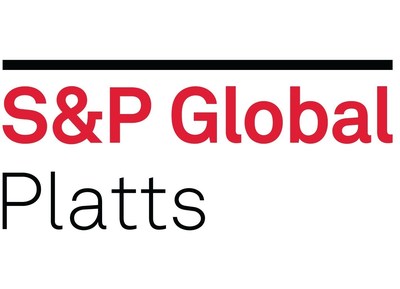World's First High-Frequency Decentralized Energy Market Helps Drive Port of Rotterdam's Energy Transition
The Port of Rotterdam successfully piloted Distro, a high-frequency decentralized energy trading platform co-developed by S&P Global Platts and BlockLab. The trial, which began in August 2020, demonstrated significant benefits, including an 11% reduction in energy costs for consumers and a 14% revenue boost for local renewable energy producers. Key outcomes included a 92% utilization rate of on-site solar energy and a 20% increase in battery storage ROI. Distro's transparent market design has the potential to save up to 30 million tonnes of carbon once fully deployed across the port.
- 11% reduction in energy costs for users.
- 14% revenue increase for local renewable energy producers.
- 92% consumption of on-site solar generation.
- 20% increase in battery storage return on investment.
- 20 million blockchain-validated transactions recorded.
- Potential to save up to 30 million tonnes of carbon.
- None.
ROTTERDAM, Netherlands and LONDON, Oct. 5, 2020 /PRNewswire/ -- The first high-frequency decentralized energy trading platform was successfully piloted at the Port of Rotterdam. Jointly developed by S&P Global Platts and BlockLab, Distro is a new microgrid electricity trading platform that leverages both Artificial Intelligence and Blockchain's distributed ledger technology.
Under the ongoing trial that commenced in August 2020, commercial energy consumers in the Port of Rotterdam's iconic innovation dock, where the world's largest submarines once used to slip off the ramp, used the Distro microgrid trading platform to actively trade renewable energy derived from solar and battery storage, matching demand with intermittent power generation. The results of the trial saw:
- Establishment of dynamic local energy prices that lowered the cost for energy users by
11% , while offering a14% improvement in revenues for local producers of renewable energy. 92% consumption of on-site solar generation, overcoming historic wastages- 32 commercial energy consumers utilized the fully automated AI trading marketplace to balance local electricity demand and supply
- Battery storage return on investment increased
20% - 20 million blockchain-validated, cleared and settled transactions
- Once fully scaled across the Port of Rotterdam's activities, Distro's transparent market design has shown the potential to support businesses in delivering carbon reduction saving of up to 30 million tonnes
During the trial, the participant buyers and sellers of renewable energy were able to access dynamic local energy prices that reflects their supply and demand balances. The responsiveness of localized prices encourages buyers to consume less when renewable generation is low by holding off until more plentiful supplies are available and in doing so, benefit from lower prices. The unique system builds upon proven practices in commodities and financial market, repackaged for the AI world. The positive results of the pilot validate the technical and commercial potential for Distro to be deployed in other locations around the world.
Nico van Dooren, Director New Business Development & Portfolio, Port of Rotterdam said: "The successful completion of our trial of the Distro new microgrid trading platform is a win-win in encouraging fair and transparent prices as well as cost efficient consumption of renewable energy for our tenants. Balancing local electricity needs with local generation holds the key to unlocking significant grid infrastructure savings. We are excited about the prospects of scaling this solution and the meaningful contribution it can make towards helping The Port of Rotterdam become carbon neutral by 2050."
The new Distro trading platform was co-developed by S&P Global Platts, the leading independent provider of information and benchmark prices for the commodities and energy markets and Blocklab Rotterdam, the Port of Rotterdam's blockchain innovation hub. Distro's rule based methodology draws on Platts 100 year experience of assessing commodity prices around the world.
"The blending of high frequency AI trading capabilities with the benefits offered by blockchain security is a landmark achievement. Distro brings seamless and tangible benefits of lower prices, improved payback on batteries and solar panels while maximizing the use of renewable energy," said James Rilett, Head of Innovation, S&P Global Platts. "Market feedback has highlighted the need for a new generation of marketplaces, like Distro, to be at the forefront of addressing climate change by helping power energy transition projects around the world."
Distro offers users in the Port of Rotterdam robust prices that instantly respond to changes in local supply and demand fundamentals while providing incentives for consuming and storing energy. The platform draws on proven security offered by blockchain smart contracts which uphold market rules, validate transactions and manage identities to ensure reliability andanonymity in the dynamic trading environment. All transactions are immutable and cryptographically verifiable, standing up to industry-level audit requirements.
The platform provides every market participant with an AI enabled 'energy trading agent' software tool that learns the user's energy needs, preferences and behaviors. It analyses billions of data points in real-time, automatically buying and selling energy at the best price for the user. ABN AMRO's Banking as a Service sandbox provided a seamless banking environment where virtual accounts were attributed to users and executed transfers as instructed by the marketplace.
Janjoost Jullens, Director, BlockLab Rotterdam said: "Working with the Port of Rotterdam and S&P Global Platts forced us to focus on business reality and meeting industry standards. We are very proud we can now equip the emerging decentralized power markets with the tools of professional electricity traders – driving up their returns on renewables and minimizing infrastructure investments needed."
Traditional power grids have come under increasing strain arising from supply-side volatility and ultimately rising costs as the world transitions towards electrification and addresses renewable energy targets. Decentralization alleviates the need to add expensive power grid infrastructure by aligning local demand with supply on the power distribution network, through incentives for demand response due to shifts in energy usage or battery charge/discharge. As renewable generation can vary second to second, these incentives change in real time.
This release is for informational purposes only. Distro is currently at mature beta stage and therefore the content of this release is not intended to form the basis of any investment decision regarding [Distro] and should not be relied on for that purpose. Furthermore, it is not a prospectus and does not constitute an offer or invitation to invest and it shall not form the basis of, or be relied upon in connection with, any security, contract or commitment whatsoever. Nothing in it should be construed as any form of advice, including investment advice, and nothing herein should be taken as any form of commitment on the part of S&P Global Inc., or any of its directors, officers, employees or agents to proceed with the Distro Project. S&P Global Inc. is not liable for any damage which may arise as a result of any incorrectness or incompleteness of the contents of this release.
About Port of Rotterdam Authority
The objective of the Port of Rotterdam Authority is to enhance the port's competitive position as a logistics hub and world-class industrial complex. Not only in terms of size, but also with regard to quality. The Port Authority is therefore leading the transition to sustainable energy and it is committed to digitalisation in order to make the port, and the supply chain, more efficient. The core tasks of the Port Authority are to develop, manage and exploit the port in a sustainable way and to deliver speedy and safe service for shipping.
Facts and figures for the Port Authority and the Port of Rotterdam: Port Authority: 1,200 employees, turnover approx.
About S&P Global Platts
At S&P Global Platts, we provide the insights; you make better-informed trading and business decisions with confidence. We're the leading independent provider of information and benchmark prices for the commodities and energy markets. Customers in over 150 countries look to our expertise in news, pricing and analytics to deliver greater transparency and efficiency to markets. S&P Global Platts coverage includes oil and gas, power, petrochemicals, metals, agriculture and shipping.
S&P Global Platts is a division of S&P Global (NYSE: SPGI), which provides essential intelligence for individuals, companies and governments to make decisions with confidence. For more information, visit www.spglobal.com/platts.
About BlockLab
Blocklab is a subsidiary of the Port of Rotterdam that puts blockchain technology into practice. Working with engineers, developers, and end users, we build applications to enhance the global energy transition and optimize global supply chains. With the Port as our main investor and as our testbed, we are equipped to bridge the gap between new technology, distributed models and current business reality.
Blocklab's portfolio holds commercial use cases with international consortia, PoC's and experiments with start ups and the wider developer community, and research programs with leading universities. www.blocklab.nl
![]() View original content to download multimedia:http://www.prnewswire.com/news-releases/worlds-first-high-frequency-decentralized-energy-market-helps-drive-port-of-rotterdams-energy-transition-301145468.html
View original content to download multimedia:http://www.prnewswire.com/news-releases/worlds-first-high-frequency-decentralized-energy-market-helps-drive-port-of-rotterdams-energy-transition-301145468.html
SOURCE S&P Global Platts
FAQ
What is Distro and how does it work?
When did the Distro trial at the Port of Rotterdam begin?
What were the benefits seen in the Distro pilot program?
How many transactions were processed during the Distro trial?








